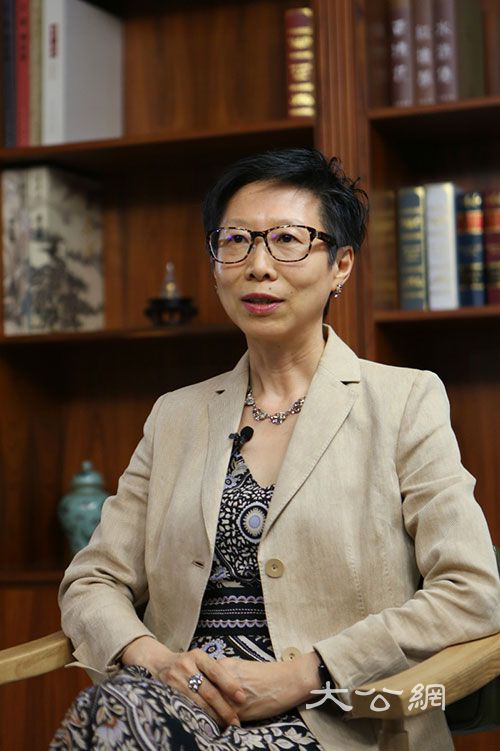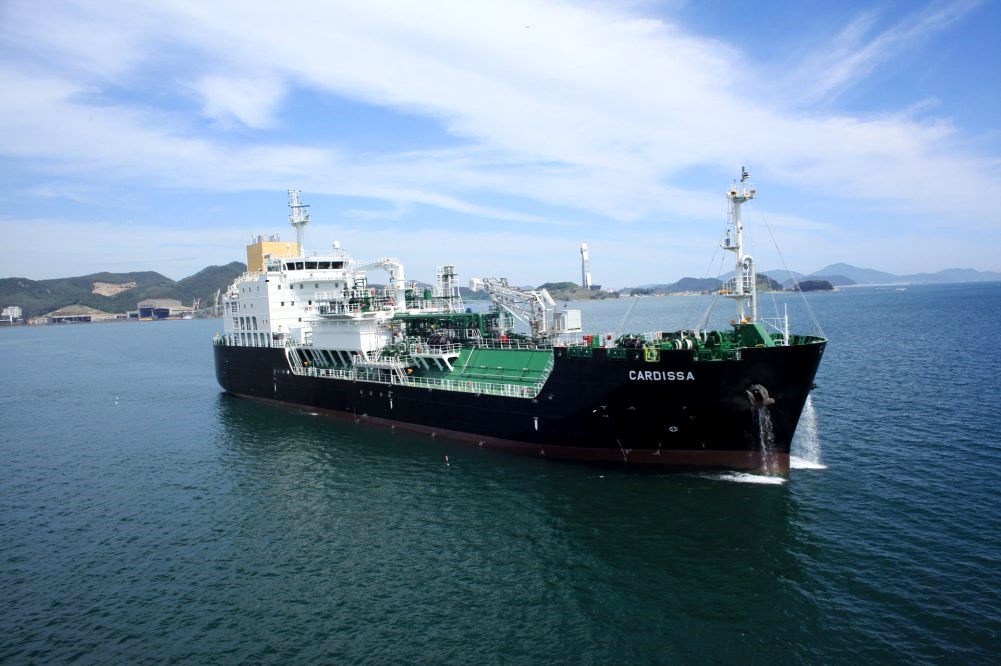Foreign enterprises have been connected with China since the beginning of the last century, but since the reform and opening up, foreign enterprises have been able to develop significantly in China. Royal Dutch Shell Group, founded in 1890, is currently the largest oil company in the world. A century ago, Shell came to China. Starting with kerosene lamps, this international energy enterprise has gradually taken root in China for 120 years.

Sakhalin Energy Grand Aniva
In fact, Shell's initial development had a deep connection with the East. One of the parent companies of Shell, the British parent company, whose founder, Marcos Samuel, ordered goods from the East when he was running a London port shop. Soon after, he had an import and export company, and his two sons further developed the import and export business, In the east, the short distance business between ports has been increased, and in the long distance business, the routes for transporting kerosene from Russia to the east have been increased.
Wang Jing, Vice President of Human Resources of Shell (China) in Greater China, said in an interview on Dagong.com: "Shell has been in China for more than 120 years. Except for a short farewell in the middle of more than 10 years, Shell has always been committed to the Chinese market and customers." At the beginning of reform and opening up, at the invitation of the Chinese government, Shell returned to China to participate in the South China Sea Petrochemical Refining and Chemical Integrated Project, Then, in 2000, CNOOC Shell Petrochemical Co., Ltd., one of the largest Sino foreign joint venture petrochemical enterprises in China, was established. At the same time, in the mid-1990s, Shell invested heavily in the development and sales of petroleum products in China and recruited a large number of local employees. It was during this period that Wang Jing joined Shell.
From one hundred to one thousand people to seek the international development of local employees
Yan Lu, another senior Shell employee, is the first Chinese retired employee of Shell, who served in Shell for 28 years before retirement. She once said that when she came to Beijing in 1993, there were about 60 Shell employees in Beijing, including only a dozen Chinese employees. Today, Shell China headquarters has grown into a huge enterprise with more than 1400 employees, and more than 90% of them are local employees. The number of local employees of the leadership has also increased significantly. At the same time, more than 12% of local employees have worked abroad.
"Localization and internationalization are always two sides of the same thing for us. So in terms of talent development, on the one hand, we try to achieve localization in the use of talent, but try to achieve internationalization in the development of local talent." Wang Jing said. She said that, as a multinational company, if it cannot deeply understand the needs of customers in the market, the government and the local people, it cannot become a good corporate citizen and provide the required services. At the same time, as a multinational company, Shell's activities in the whole value chain, including procurement, supply, internal control, finance The market brand is global. Shell believes that focusing on the international development of local employees can bring Shell's business in China to a new height.
Whether it is social recruitment or campus recruitment, Shell emphasizes people's "leadership" in talent selection. Wang Jing said that the recruitment of talents can be divided into two categories: those with work experience and those without work experience. For those without work experience, Shell puts more emphasis on the leadership and potential of candidates, while for those with work experience, Shell puts more emphasis on the professional ability and leadership of candidates.
"Shell's SRD evaluation system is quite famous in the university circle. Students who have basically passed Shell's evaluation and received offers can apply for jobs through many other large companies, which is an IP with a sense of achievement for us," said Wang Jing. For graduate jobseekers without work experience, entering Shell requires three tests in terms of leadership and potential. First, comprehensive analysis ability and insight. Candidates strive to see the essence through the appearance of numerous things, and also need to see the extensive connection and interaction between things; Second, executive power, including not only the applicant's self-management, planning, discipline, but also the way to deal with difficulties; Third, interpersonal communication, also known as interpersonal force, is a link that mainly examines how candidates can effectively influence stakeholders to make them more cohesive.
For candidates with work experience, leadership is more about emphasizing the characteristics of people themselves. "The use of one's own ability is subject to one's subjective will, and the characteristics are closely related to values, principles of conduct and other internal qualities", said Wang Jing. This kind of leadership emphasizes four aspects: sincerity: virtue and credibility; Growth: continuous learning drives extraordinary transformational growth; Achievements: persistent pursuit of outstanding performance; Cooperation: advocate selflessness and promote joint efforts. "Our leadership has many requirements on the character of leaders, and professional ability is just a threshold".
In 24 years, only one company, Shell, has given employees huge space
"My perception of Shell started from complete ignorance," said Wang Jing. She joined Shell in 1994 and has worked at Shell for 24 years, leaving most of her best time in this multinational company. People's impression of energy enterprises mostly comes from television and advertising. The usual picture is of large machinery and facilities such as offshore oil platforms, large natural gas ships, oil field derricks, or a large group of engineers and technical workers engaged in boring science and engineering work, and this preconceived impression, There is no exciting new stimulation for most audiences with non science background.

Wang Jing, Vice President of Human Resources of Shell (China) Greater China, receives an exclusive interview with the public network/Photographed by Wang Ping
Wang Jing also experienced such a cognitive stage when she first entered Shell, but when she really got involved in Shell, she found that the energy company was full of tension and vitality, which brought her vision unimaginable before. She never thought that many technological innovations in the oil and gas industry, such as geophysical analysis, 3D seismic imaging, horizontal branch drilling, deep-sea remote control drilling, were all made by Shell, a group of scientists and engineers full of passion and creativity who have been struggling in the forefront of extreme climate and natural environment all the year round. The non-technical departments within the company that span the entire business value chain of the energy industry are also full of tension and vitality. All these have completely changed Wang Jing's stereotype of Shell. Wang Jing introduced that in addition to its technical charm, Shell has a wide range of business activities. At present, Shell has more than 40000 retail networks, which is one of the largest retail networks in the world. "If you want to seek exciting achievements, a fresh sense of promoting change, a high degree of ability and strategic thinking, and the expansion of career and international vision, you can accumulate rich work experience across industries and borders in Shell without changing companies," said Wang Jing.
Wang Jing has worked in Shell for 24 years, and has served the same company for such a long time, which makes it more or less unimaginable for the post-90s and post-00s generation. But Wang Jing doesn't care. She said that in fact, she changed many different jobs in the process of working in Shell. In the early days of Shell, Wang Jing's main job is to provide some help for foreigners in China, The second job is to provide human resources services for local people. The third job is to work on compensation and welfare policies and serve as the Human Resources Manager of the Northern Region. During this period, he was also assigned to Australia as the compensation and welfare commissioner of Oceania. The fourth job is to serve as the HR manager of China's downstream business, and then as the manager of diversity, inclusiveness and talent development. In the past 24 years, Wang Jing has experienced different business experiences. "I don't need to change companies to experience different industry practices. I can experience different challenges that human resource management in different industries may encounter in the entire industrial and commercial value chain in the same company." Wang Jing said that she also felt that Shell's core values are consistent with her own personal values, I can become a better person here.
"More than 20 years of work experience, both successful and unsuccessful, are profound experiences for me", she said when talking about her understanding of more than 20 years of work. People's growth and work transformation go hand in hand. "For me, the biggest experience of more than 20 years is that we must have an open learning attitude, and we must constantly tell ourselves that I am still ignorant of many things, and the process of changing from ignorance to knowledge is interesting". At the same time, long-term engagement in human resources requires you to always be endlessly curious about the business, Wang Jing said that we must be brave and willing to try, and Shell's inclusiveness also gives employees the opportunity to learn from their mistakes.

Shell employees are cheering for customers/respondents provide pictures
At the moment of rapid talent transfer, Shell still maintains a single digit brain drain rate. So far, the average service life of Shell's local employees has exceeded 8 years, which is rare in multinational companies. "One of the important reasons why this century old enterprise has stood still is Shell's business standards and ethics. We have very clear boundaries and strict implementation. Among them, employees are important stakeholders, and we should fully respect them," Wang Jing said.
Reform and opening up is a process of enrichment, learning and growth
As for reform and opening up, Wang Jing said that this is a process of a country from weak to strong, from single to inclusive. Shell returned to this land in the 1970s after a short farewell to the mainland of China. In 1970 and 1971, Shell was invited to participate in the China Export Commodities Fair twice a year, namely the Canton Fair. At that time, most of China's exports were achieved through the Canton Fair. In the frequent exchanges in the 1970s, Shell gradually went back to the mainland. In 1980, Roger? Williams was officially transferred to Beijing, when he talked about the Summer Palace Yangyun Xuan as Shell's office in Beijing, and then Shell's business in China developed rapidly.
In 1982, Shell reached an agreement with China to establish the first Shell cooperative enterprise in China in Shekou, Shenzhen - Yinghua Petroleum Joint Venture Co., Ltd; In 1984, Shell established the first joint venture directly managed and operated by Shell - Chiwan Shell Petroleum Trading Joint Venture Co., Ltd. In the following years, a number of important projects have been completed one by one. To date, Shell has made remarkable achievements in China's energy industry:
● Shell is one of the largest multinational companies in China at present;
● Shell actively and deeply participates in China's upstream business, especially in the field of natural gas development;
● Shell is the first international lubricant manufacturer and distributor in China;
● Shell has a large-scale gas station network in China;
● Shell is a leading international purchaser of energy services/equipment in China;
40 years since the reform and opening up, the development path of foreign capital in China can be seen from Shell's development track. Wang Jing joined Shell more than 20 years ago and was responsible for the work and life of foreign employees in China. Her years of work experience in foreign-funded enterprises made her deeply feel that the business environment in China has been greatly improved.
Since the reform and opening up, Wang Jing has been touched by the gradual improvement of laws and regulations. Take the Labor Law as an example. At the beginning of work, many laws and regulations in the newly launched Labor Law are very different from international practices, which is a challenge for foreign enterprises. "When we went to Tianjin to open the factory in 1995, we got only a few thin pages of the labor contract template. The provisions on the responsibilities and obligations of both employers and employees are just a rough framework, which is far from international practice," Wang Jing said.

Shell LNG Vessel Cardissa /Photograph provided by respondents
In addition, China has also achieved rapid development in infrastructure and communication technology. Wang Jing recalled that in the 1990s, Shell needed to rent satellite phones from overseas for offshore drilling, while the emergency response staff on duty at that time also needed to use bulky mobile phones, and they needed to carry two or three batteries every day to meet the daily communication power consumption. Now, China has not only achieved the rapid development of road traffic and other infrastructure, but also achieved international leadership in high-speed rail network, electronic payment, e-commerce and other fields.
With the rapid development of China's economy, as consumers, the quality of life of Shell's foreign employees has also changed substantially. According to Wang Jing, the supply of consumer goods in the 1990s even some basic living needs of foreign employees could not be fully met: "If our employees want to buy the most common food (cheese, aerated mineral water, etc.) in foreign supermarkets, they can only go to Yansha, Friendship Store, and ITC Huikang to try their luck in supermarkets all over Beijing. Now, the variety of consumer goods and related services, the improvement of service efficiency, and the convenience of payment methods are unimaginable. " For foreign-funded enterprises, all these reflect the continuous progress of China's business environment.
Of course, there is still room for improvement. For example, at present, the urban services in mainland China, especially the language, public facilities and service functions, are still less international than those in Hong Kong, Singapore and other cities, and need to be improved. Wang Jing worked in Hong Kong for some time after joining Shell, which made her deeply feel about it. "For example, the language environment, Hong Kong's public facilities are basically trilingual, Cantonese, Mandarin, English, but Beijing English signs are not everywhere, and the English level of service personnel is also different", she also said that China's vast land area and large population lead to diversified needs of all parties, It is not easy to form a reform plan that takes into account the requirements of all parties, but it can be seen that all relevant departments have also been making efforts to make improvements.
The global trade situation in 2018 is not optimistic. On July 6, the United States began to impose an additional 25% import tariff on 818 categories of Chinese imports worth US $34 billion. As a counterattack, China also imposed an additional 25% import tariff on US goods of the same size on the same day, and then the US government announced a list of further tariffs on China, It is proposed to impose a 10% tariff on Chinese products worth about US $200 billion. Not only that, global trade has been overshadowed by ongoing trade disputes. While Sino US trade disputes have intensified, the United States has initiated tariff protection for Canada, Mexico and other countries and regions, which has increased the uncertainty of world trade.

Shell employees are working /Photograph provided by respondents
The trade war also had more or less impact on Shell and other enterprises. Van Burden, CEO of Royal Dutch Shell, once said in an interview: "The imposition of tariffs does not directly affect Shell's business, but does have some indirect effects."
In this regard, Wang Jing believes that as a multinational company with active business in more than 60 countries around the world, Shell faces different systems and legal systems in different countries every day. Dealing with diversified environmental changes is also part of the business of multinational companies. The emergence of trade wars is also a case of environmental changes. As a multinational company, Shell always needs to fully assess the impact of changes in the business environment on the company in the operation process, and make corresponding adjustments and response plans. Wang Jing said, "For us, this is the ecological environment that has always existed in Shell's global business activities. Shell's business principles provide clear guidelines for the company's business activities in various countries. An important part of this is that no matter where we operate, we will follow local laws and regulations and never do anything illegal."
According to Wang Jing, Shell's business scope is very broad. For example, in e-commerce, Shell has established corresponding e-commerce departments in the main business parts related to downstream markets, and has made many attempts in information and business model electronization. "We have noticed that in today's e-commerce field, the United States may be more of the birthplace of business model innovation, but China is the real leader in successfully transforming business ideas into business practices and bringing real gold and silver to investors. Chinese entrepreneurs dare to take risks and try new things, and their learning ability and iterative ability are very strong." Wang Jing said.





